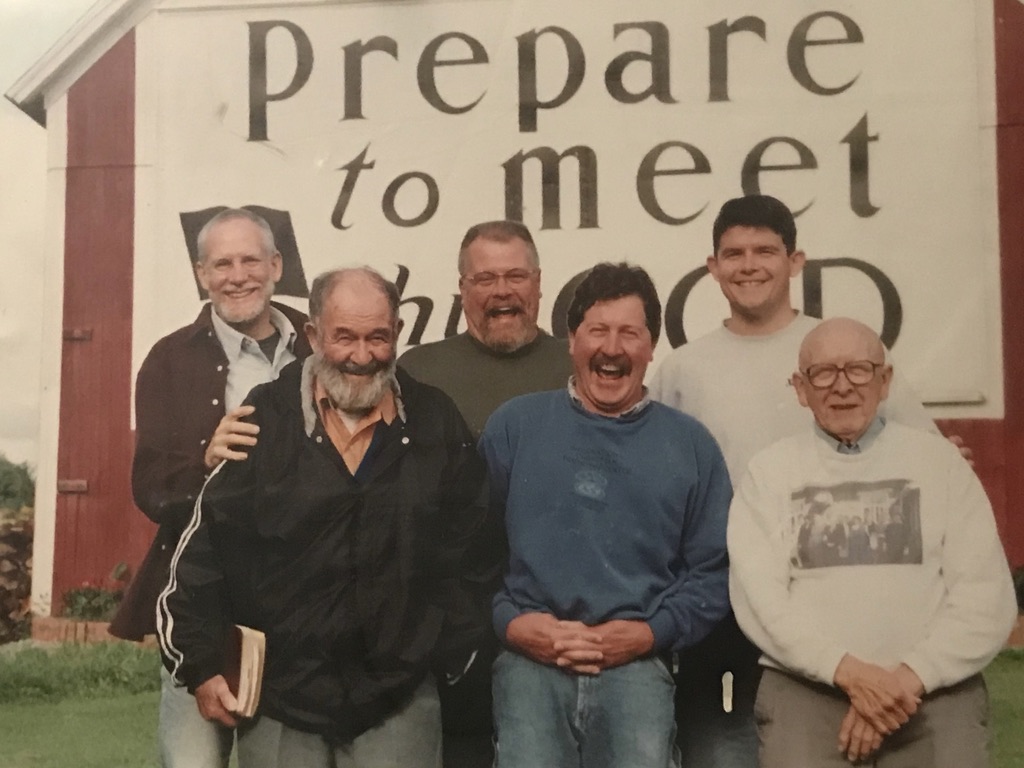Note to my readers: I self-identity as a Judeo-Christian heretic. I make no apologies to anyone, trusting that God, our Tutor, has faith in each of us. (I did graduate-study briefly at an “ivy” divinity school, but not for the ministry; I dropped out, welcome to return.) I’ve been elected by congregations to conduct weekly worship, doing so for several years, but no longer sit in pews – instead, studying The Text(s) daily at home, but always approachable by anyone with spiritual curiosity, hunger, thirst. (I peddle no brand, aside from Universal Divine Love.) ‘Nuff said.
Dear Roy,
“The Lord is my [our] shepherd . . .” (see Psalm 23)
The Lord is also our Patient Tutor, inviting us into daily dialog. Rabbi Jesus was a speaker of truth, but not a writer. Showing up for breakfast with Jesus is stimulating! He speaks to us between the lines of our Textbook, the Bible. We speak with him in prayer and listening, in quiet meditation — “My sheep know my voice . . .
(see John 10).
I don’t sit in pews anymore, except to pay respects to late friends, young couples, or new arrivals.
Church is/and can be enjoyed anywhere;
ad hoc, spontaneously. St Paul terms church “the body of Christ;
ekklesia”(118 times in Luke-Acts). It’s not a building, or a brand; it’s a relationship, a delight regarding our community, our context, recognizing Christ in each other, and in our neighbors.

The Welcoming Committee / “Prepare to meet thy God.” ~ Amos 4:12 [photo by MeridaGOround]
I’m about 15 years your senior. And for about 15 years, while still up north, I learned much from a small weekly Saturday-morning Bible study at a nearby farmhouse attended by Catholics, Baptists, Mennonites, non-affiliateds, after which a few of us would adjourn to a local prison to continue in a nondenominational Bible study with a group of about a dozen inmates, reading the Text aloud around the circle, for discussion. Being a fellow student in both of those studies was often a high point of my week. We were there to learn, too, along with those prisoners, some of whom were very astute.
The portions of the Textbook detailing the career and after-effects of the life of Jesus — the “good news”/gospels and “the letters”/epistles — were written by witnesses, or reported to their listeners, at least 30+ years after the crucifixion, but we have none of those original documents, which were later tampered with by well-meaning (but biased and meddlesome) scribes/”copyists”, as is clearly evidenced in the many hand-copied scrolls and codices of those early times, by comparing them, which reveals variations between them. (Could anybody write accurately of what they heard that long before? — but the point is moot, as we don”t have the originals.) So, if we want to listen for our Tutor’s voice, it’s an asset to have flexibility for reading between the lines of the Text in it’s many translations; and to think with intense curiosity about the words and meanings.
The word logos in Greek means reasoned, principled; we see it in our English word logical — something very different than emotional : moving (Fr. a public disturbance). In John’s gospel, Logos is capitalized as Word in chapter one to represent the Messiah, the Christ, “the Annointed”. Rationality (logos) is a two-edged sword, affirming and denying. It defends truth and cuts down lies. Ancient Greeks wrestled to fathom truth, eventually describing it as “that which is not a lie”. Such a slashing definition! Faith requires logic and appetite — hunger and thirst for right thinking and principled living — to maintain justice and balance in our communities.
In spite of our distractions, rebellions, class-skipping, chasing after our own desires, God has patience with us, and faith in us. Faith comes from God. We can’t generate it on our own!
Trust, yes we can do that, gradually. But the faith is God’s, in us and through us. God believes in the human family! The best way to sharpen our appetite is to dine with God daily, our morning meal of communion. Bread and fish and many a dish are served, freshly prepared and deliciously seasoned, washed down with the fruit of the vine (
see John 15; and
John 6). Relocating hunger from our bellies to our hearts is wise.
The “SERMON ON THE MOUNT”
(Matthew 5-7) is a good place to start. I hope you will visit this great gift often. (You can pick your preferred translation from dozens.)
THE GIFT: I’ve queued up a fresh modern version for you. Got appetite? Religion and politics are very separate topics, which the Founders of our nation treated wisely in the First Amendment. But we’ve forgotten much, and are ignoring those guardrails. (America is
not a “Christian nation”; we allow all religions.) The Founders built a wall of separation between church and state – a global first – to protect the church from the state, and the state from the church. See
CURING CHRISTIAN NATIONALISM by Congressman James Talarico (TX) a short video (19 minutes) – a powerful Christian rebuke! (NOTE: his sermon starts with funny beer-jokes.)
Roy, if you insist on voting for someone who is unkind, unChristian, undemocratic, unreasonable, I will honor your right to do so; that’s your privilege in America. (We both defended that right.) But just remember: I still love you, and my vote cancels yours <wink/grin>
~God is the Giver! “Thank God for this gift, too wonderful for words.”
(2Cor9:15 ~NLT)

